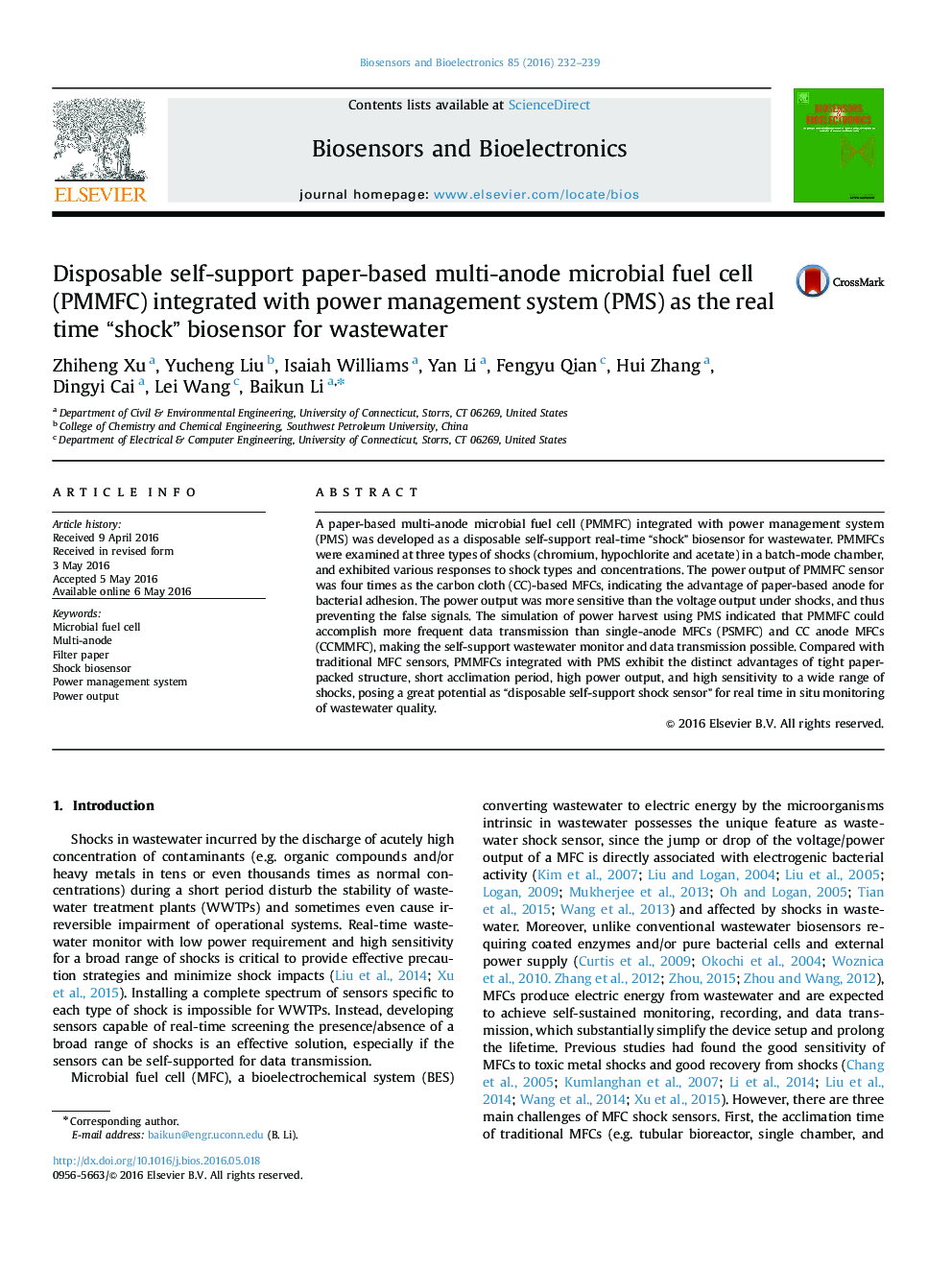| Article ID | Journal | Published Year | Pages | File Type |
|---|---|---|---|---|
| 7230371 | Biosensors and Bioelectronics | 2016 | 8 Pages |
Abstract
A paper-based multi-anode microbial fuel cell (PMMFC) integrated with power management system (PMS) was developed as a disposable self-support real-time “shock” biosensor for wastewater. PMMFCs were examined at three types of shocks (chromium, hypochlorite and acetate) in a batch-mode chamber, and exhibited various responses to shock types and concentrations. The power output of PMMFC sensor was four times as the carbon cloth (CC)-based MFCs, indicating the advantage of paper-based anode for bacterial adhesion. The power output was more sensitive than the voltage output under shocks, and thus preventing the false signals. The simulation of power harvest using PMS indicated that PMMFC could accomplish more frequent data transmission than single-anode MFCs (PSMFC) and CC anode MFCs (CCMMFC), making the self-support wastewater monitor and data transmission possible. Compared with traditional MFC sensors, PMMFCs integrated with PMS exhibit the distinct advantages of tight paper-packed structure, short acclimation period, high power output, and high sensitivity to a wide range of shocks, posing a great potential as “disposable self-support shock sensor” for real time in situ monitoring of wastewater quality.
Related Topics
Physical Sciences and Engineering
Chemistry
Analytical Chemistry
Authors
Zhiheng Xu, Yucheng Liu, Isaiah Williams, Yan Li, Fengyu Qian, Hui Zhang, Dingyi Cai, Lei Wang, Baikun Li,
